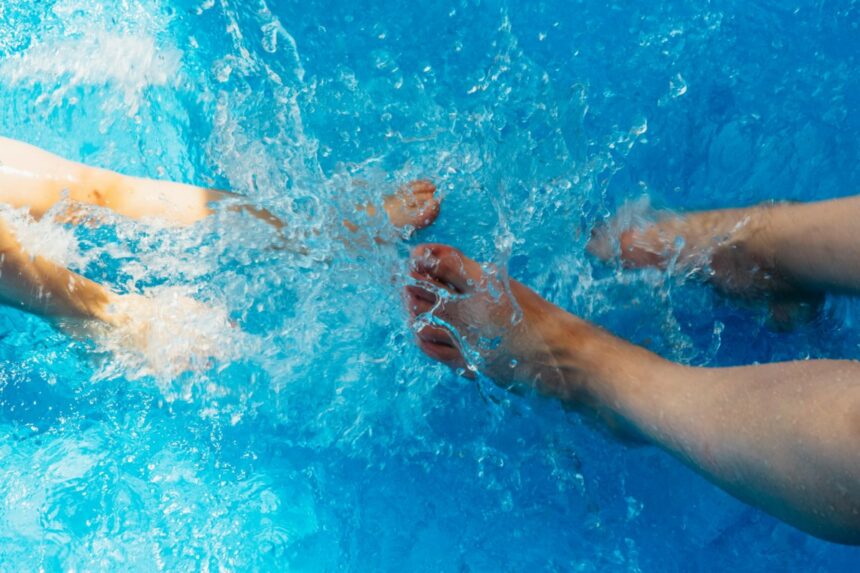A sweeping inspection of recreational water facilities across Simcoe Muskoka has resulted in multiple health hazard orders, forcing several Barrie-area pools to temporarily cease operations during the height of swimming season.
The Simcoe Muskoka District Health Unit (SMDHU) confirmed yesterday that inspectors have issued numerous compliance orders following routine safety checks that revealed concerning violations of provincial health regulations.
“We’ve identified several critical infractions that pose immediate risks to public health,” said Dr. Margaret Chen, Chief Medical Officer at SMDHU. “These aren’t minor administrative issues—we’re talking about fundamental safety concerns that could lead to waterborne illness outbreaks or accidental injuries.”
Among the violations identified were improper chlorine levels, inadequate filtration systems, and in some cases, non-functioning emergency equipment. At least three residential community pools and two hotel facilities in Barrie have received closure orders pending remediation of these issues.
The timing couldn’t be worse for property managers and families seeking relief from summer heat. The Lakeside Heights Condominium complex, home to over 200 families, expressed frustration over their pool’s indefinite closure.
“We understand the health concerns, but this is devastating for our residents, especially families with children who rely on our pool for summer activities,” said Thomas Whitman, property manager at Lakeside Heights. “We’re working around the clock with contractors to address the violations.”
Health officials emphasize that proper pool maintenance isn’t merely about comfort—it’s a serious public health matter. Improperly maintained pools can harbor dangerous bacteria including E. coli and Cryptosporidium, which cause gastrointestinal illnesses that can be particularly severe in children and elderly individuals.
Data from the Canada News health reports indicate that recreational water illnesses affect thousands of Canadians annually, with nearly 40% of cases traced back to improperly maintained swimming facilities.
Provincial regulations require daily testing and maintenance logs for public swimming facilities, with specific parameters for chemical balance, clarity, and safety equipment functionality. Facilities found in violation face mandatory closure until remediation is complete and verified by health inspectors.
Industry professionals note that many facility managers may be struggling with a nationwide shortage of certified pool technicians and rising costs of maintenance chemicals, creating a perfect storm for compliance challenges.
“We’re seeing a 30% increase in chlorine costs compared to pre-pandemic levels, plus a significant labor shortage in qualified maintenance personnel,” explained Janice Rodriguez, owner of Clear Waters Pool Services. “That said, these aren’t optional requirements—they’re essential safety measures.”
The health unit plans to continue its rigorous inspection schedule throughout the summer months, with particular attention to high-volume facilities serving vulnerable populations like children and seniors. Officials expect most closed facilities will reopen within 5-10 days, provided owners promptly address the identified hazards.
For Barrie residents seeking alternative swimming options, the health unit maintains an online database of inspected and approved recreational water facilities at their website, updated daily to reflect current operational status.
As communities navigate these disruptions during peak swimming season, the situation raises important questions about the balance between accessibility and safety: how can facility operators better maintain compliance while managing rising costs, and what responsibility do users bear in demanding proper maintenance of these shared resources?

























